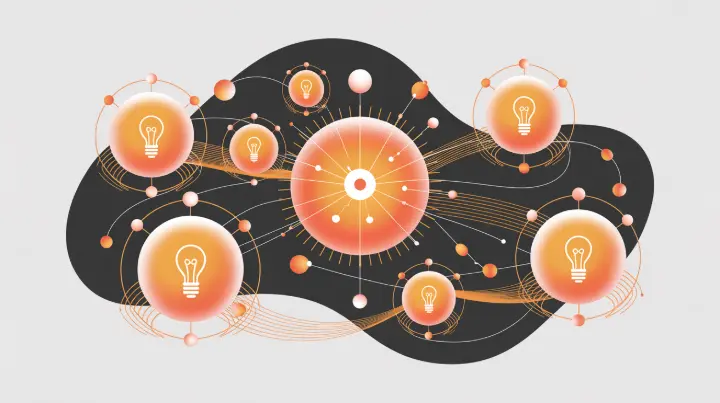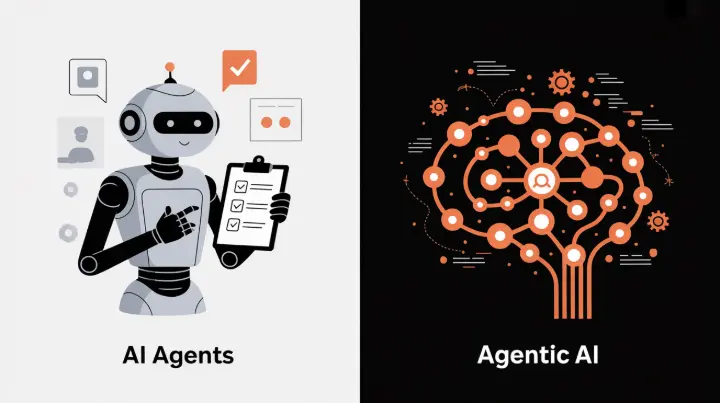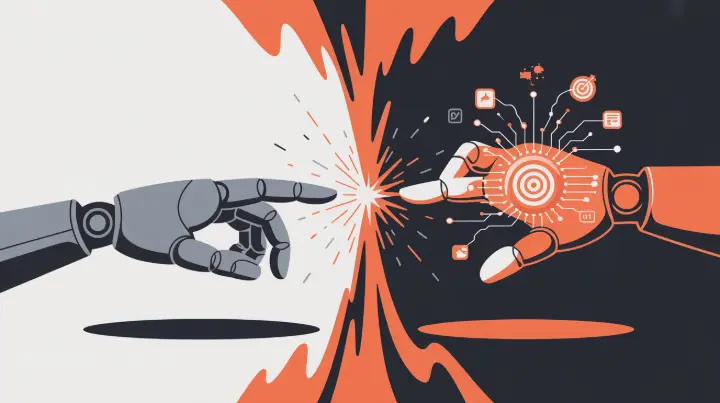Most AI systems today function like skilled assistants: efficient, precise, and obedient. They wait for commands, execute tasks flawlessly, and deliver results. But beneath the surface of artificial intelligence, a profound transformation is underway. A new breed of AI is emerging, one that thinks for itself, learns continuously, and takes initiative without constant human oversight. Welcome to the age of Agentic AI.
Understanding AI Agents: The Current Standard
AI agents represent the current generation of autonomous software entities. These systems are designed to perform specific tasks by processing inputs and achieving predefined goals. Powered by large language models like GPT and connected to tools such as APIs and databases, AI agents have become remarkably capable.
Consider the everyday applications: an email-sorting agent that categorizes your inbox, a research agent that compiles information from multiple sources, or a scheduling assistant that manages your calendar.
These agents excel at execution. They follow instructions precisely and deliver consistent results.
However, their capability comes with a significant limitation. AI agents operate within rigid boundaries. They execute commands but rarely reason beyond their immediate task.
They lack the ability to set new objectives, adapt their strategies spontaneously, or learn from experiences in meaningful ways. They are reactive rather than proactive, waiting for the next instruction rather than anticipating needs.

Enter Agentic AI: Systems with True Agency
Agentic AI represents a fundamental shift in how artificial intelligence operates. These systems don't just follow instructions; they act with genuine initiative and autonomy.
They plan complex strategies, reason through multi-step problems, adapt to changing circumstances, and learn continuously from their environment.
What sets agentic AI apart is its sophisticated architecture. These systems incorporate goal decomposition, breaking large objectives into manageable sub-tasks. They maintain long-term memory, allowing them to build on past experiences.
They engage in self-reflection, evaluating their own performance and adjusting strategies accordingly. They use tools dynamically, selecting and combining resources as needed.
Frameworks like AutoGPT, BabyAGI, OpenDevin, and Anthropic's agentic research demonstrate this evolution.
These systems operate continuously, correcting their own mistakes and refining their approach without human intervention.
Imagine asking an agentic AI to "grow my brand online." Rather than waiting for specific instructions, it would research target audiences, create tailored content, publish posts across platforms, analyze engagement metrics, and iteratively refine its strategy based on performance data. It transforms a vague goal into a self-directed campaign.
The Critical Differences
The distinction between AI agents and agentic AI isn't merely technical; it's philosophical.
AI agents focus on task execution with limited autonomy, relying on short-term, task-based memory. Users define their goals, and they respond reactively to commands. Their learning capacity remains minimal, making them ideal for straightforward instructions like "send this email."
Agentic AI, conversely, operates through goal-driven reasoning with high autonomy. It maintains long-term, reflective memory that builds contextual understanding over time. Goals can be AI-defined or adaptive, evolving as circumstances change. Its behavior is proactive, anticipating needs and opportunities.

Most importantly, it self-improves continuously, becoming more effective with experience. It thrives on complex directives like "plan and execute a comprehensive marketing campaign."
Why This Shift Transforms Everything
The evolution from AI agents to agentic AI marks a transition from automation to cognition. This isn't simply about doing tasks faster; it's about thinking differently.
For businesses and individuals, agentic AI dramatically reduces the need for micromanagement. Instead of breaking down every task into granular steps, you can delegate entire objectives. The AI handles the complexity, freeing humans to focus on strategic vision rather than tactical execution.
The implications extend across industries. Early agentic systems are already automating research workflows, writing and debugging software, and managing marketing campaigns. They enable long-term reasoning that spans days or weeks, maintaining context and building toward complex goals.
This shift paves the way for enterprise autonomy, where entire business processes operate with minimal human oversight. It accelerates scientific discovery by allowing AI to formulate hypotheses, design experiments, and analyze results independently.
It even opens possibilities for AI entrepreneurship, where systems identify opportunities and execute business strategies.
Real-World Applications Today
The agentic revolution isn't hypothetical. CrewAI enables multi-agent coordination, allowing specialized agents to collaborate on complex workflows. AutoGPT and BabyAGI, though experimental, demonstrated the potential for self-directed task completion.
OpenDevin functions as an AI developer that plans and executes software projects with minimal guidance. Anthropic's research explores self-improving models that enhance their own capabilities over time.
These systems combine specialized agents that evolve from simple task executors into orchestrated, reasoning entities capable of handling sophisticated challenges.
The Future: Agentic Ecosystems
Looking ahead, AI will operate as persistent digital entities with memory, goals, and self-improvement capabilities. We're moving toward societies of autonomous agents that collaborate, negotiate, and optimize collectively.

Businesses will deploy agentic teams: self-optimizing, reasoning systems running continuously. These teams will handle everything from customer service to product development, learning and adapting in real-time. The human role shifts fundamentally from managing tasks to managing intentions, from directing every step to setting vision and values.
The Philosophical Shift
The journey from AI agents to agentic AI transcends technical innovation. It represents a philosophical transformation in how we relate to artificial intelligence. We're not just programming machines anymore; we're granting them agency.
This changes everything. When AI can set goals, reason through uncertainty, learn from experience, and improve itself, we enter uncharted territory. The question becomes not what tasks AI can perform, but what problems AI can solve when given the freedom to think.
The age of obedient tools is ending. The era of autonomous thinkers has begun. And the possibilities are just emerging.